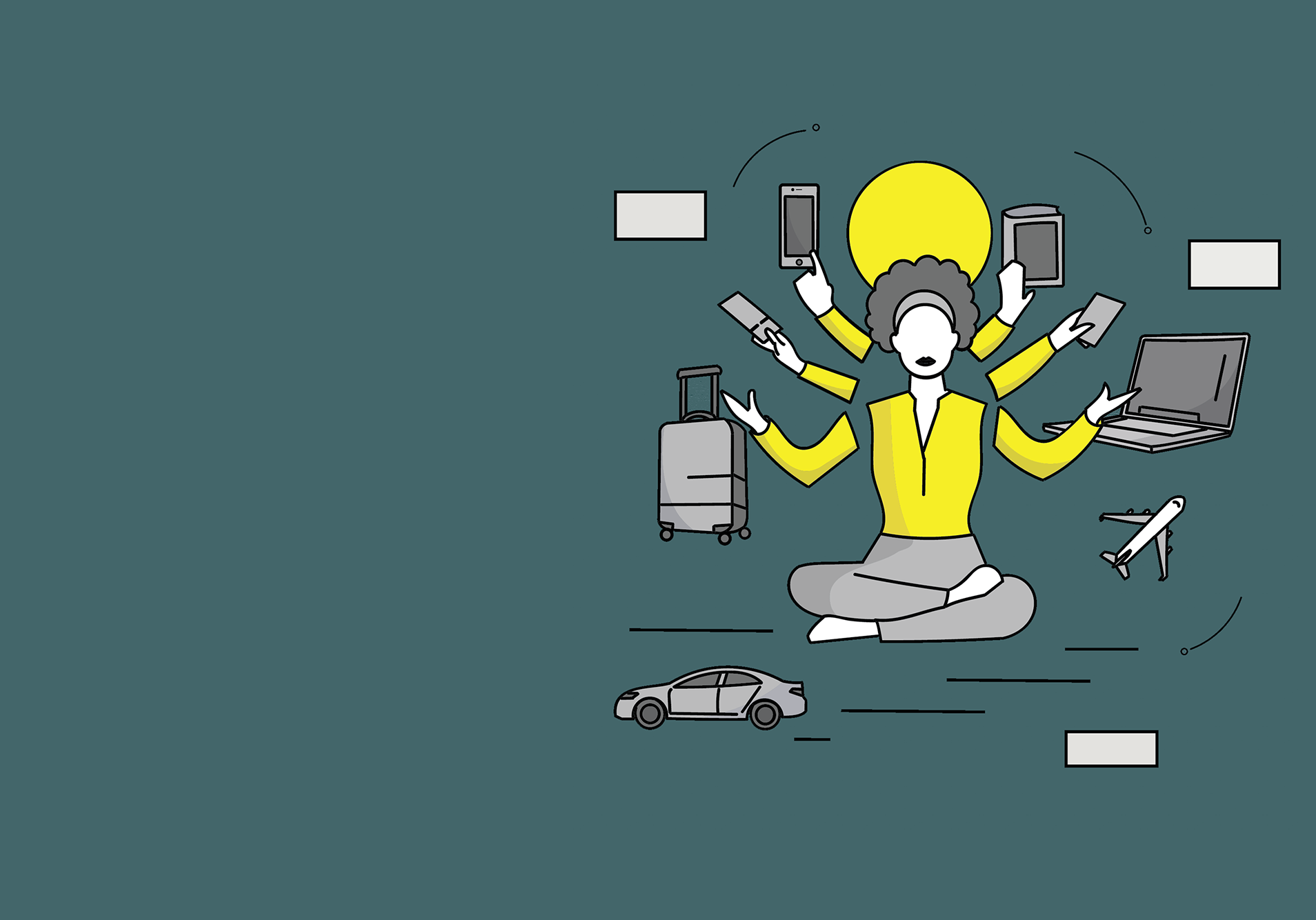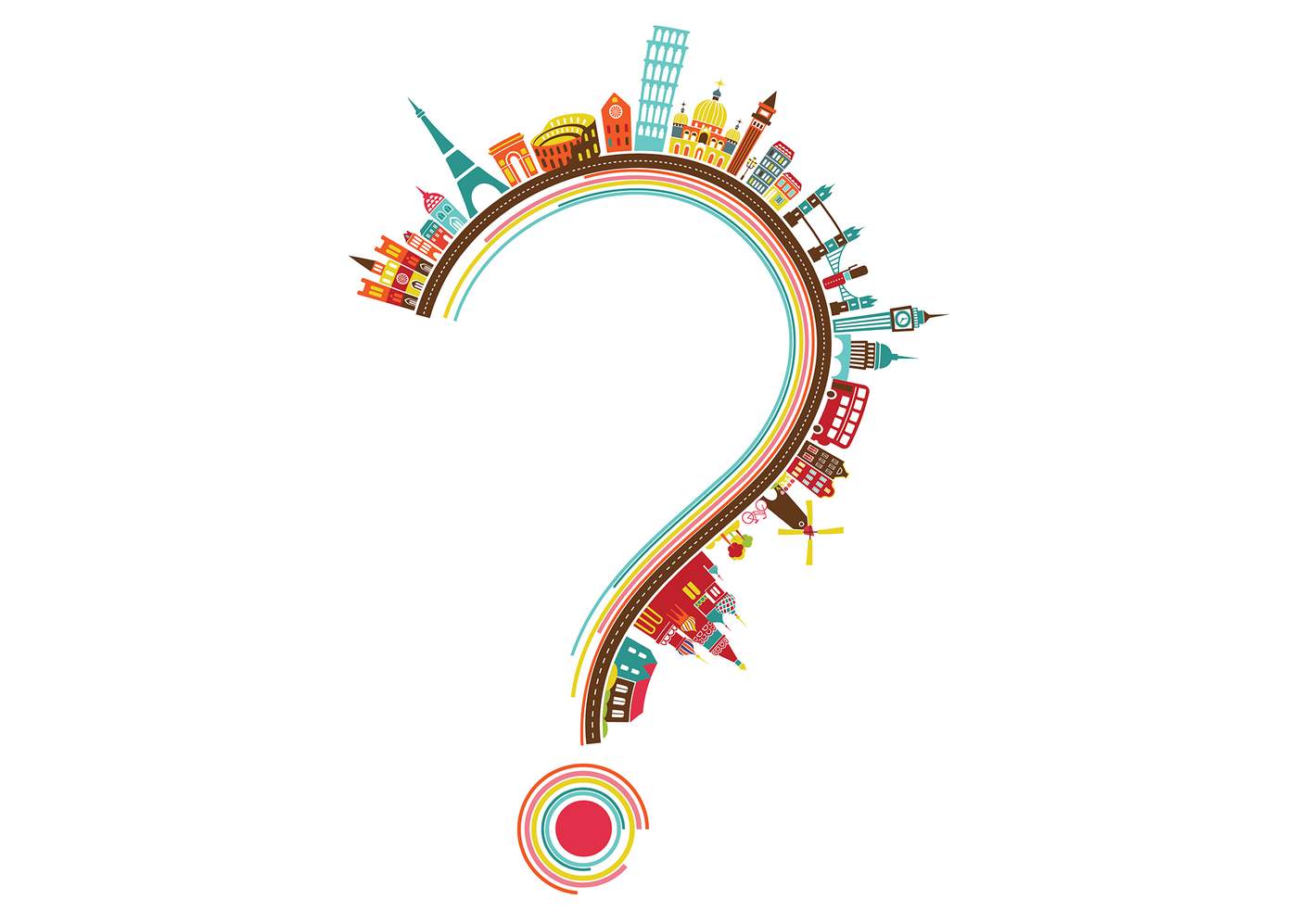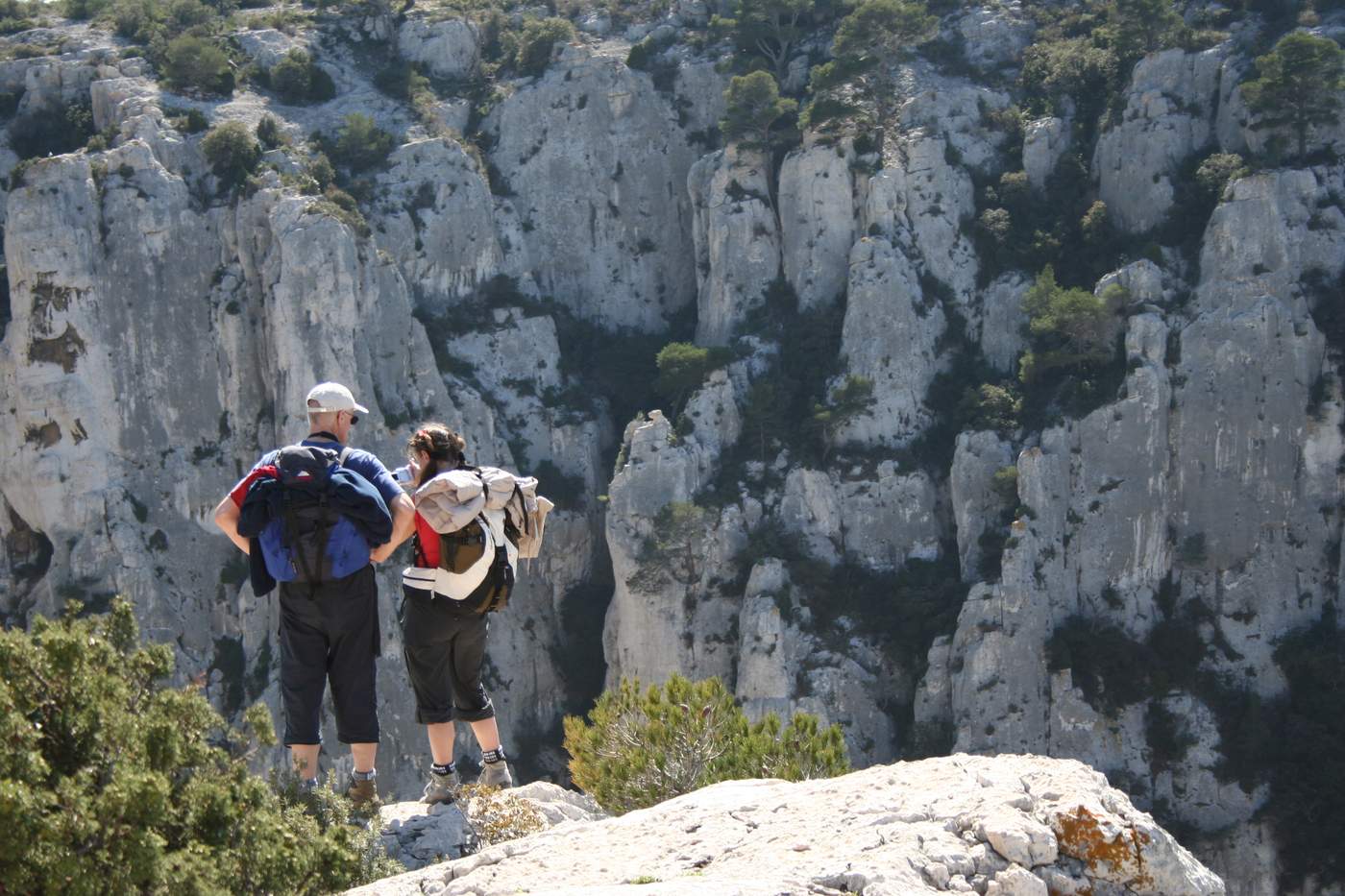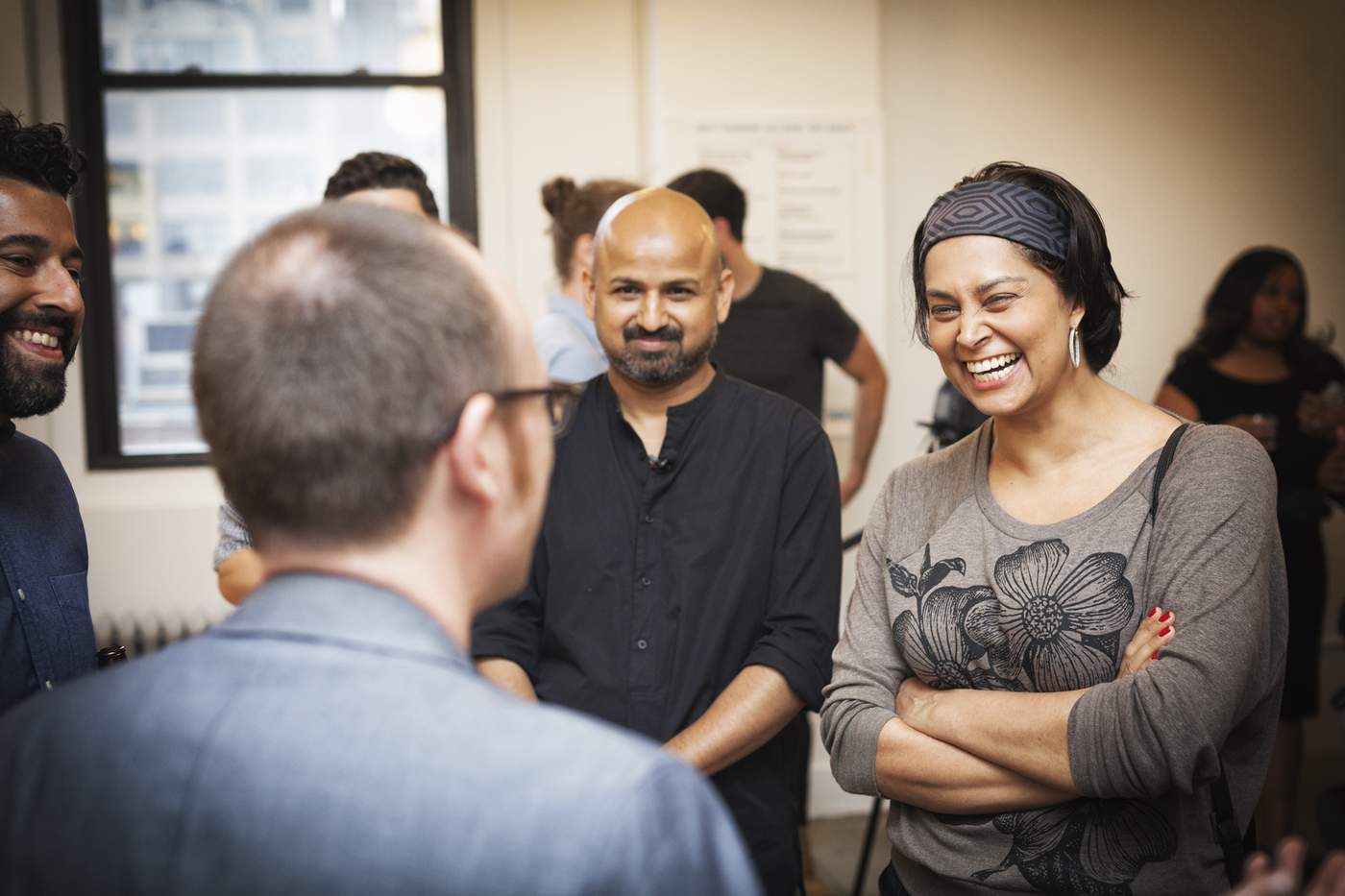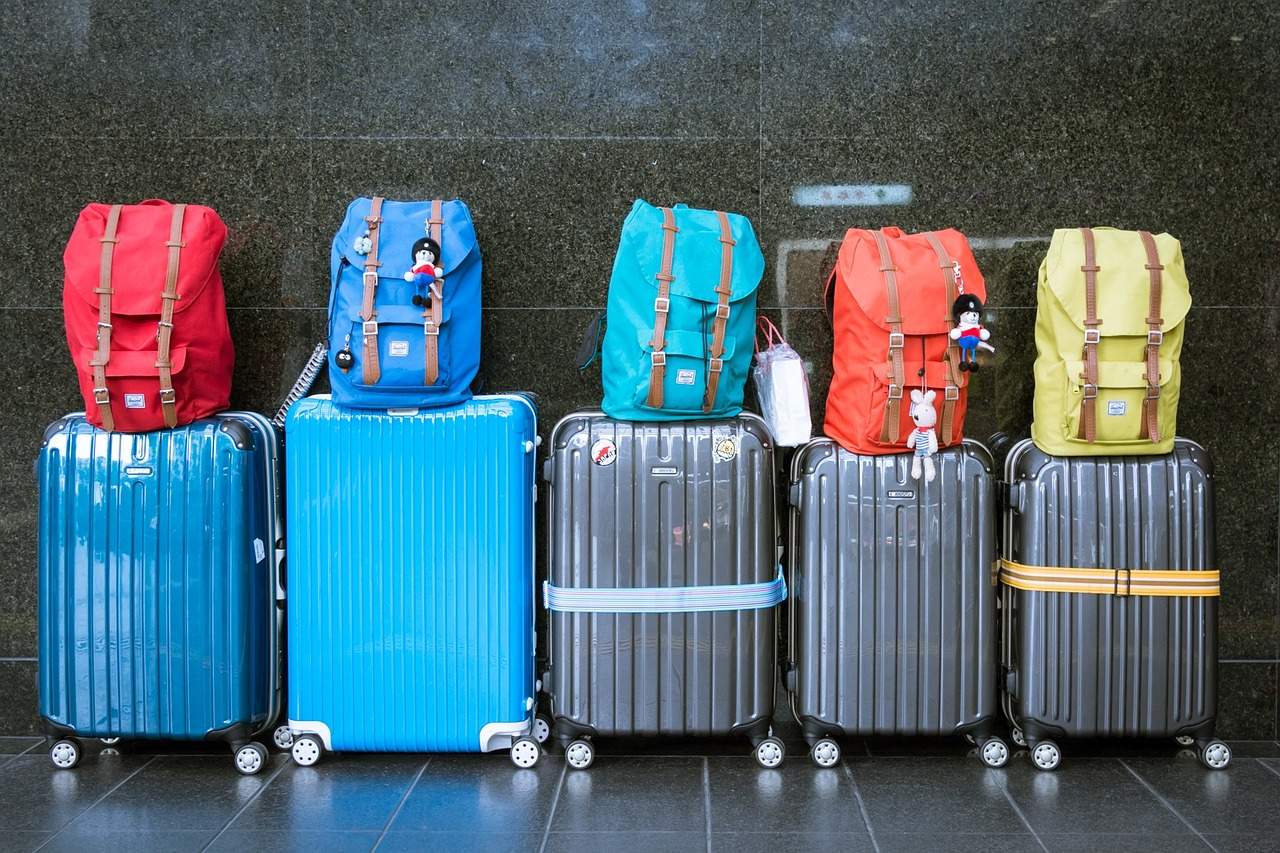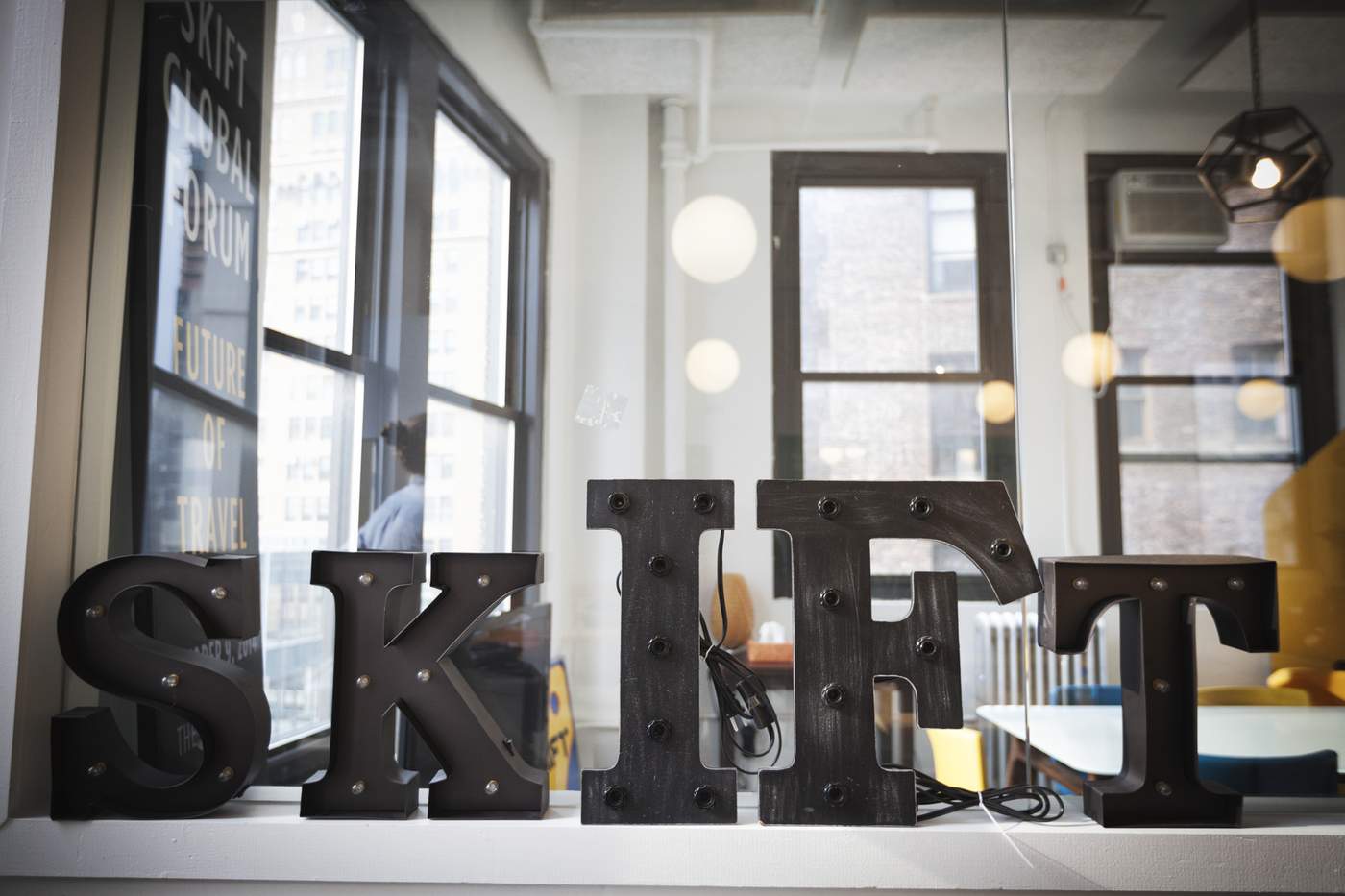This package below, about 10,000 words and four months in the making, is our Supertraveler Manifesto. Why are we focusing on these early-adopter, avid, and demanding travelers?
We see supertravelers as a mirror to the larger changes happening in consumer behavior — especially digital habits — and how they get reflected and fulfilled in travel.
For this manifesto, we talked to these supertravelers — both on business and leisure sides — about their needs from airlines, airports, hotels, destinations, agents, and other parts of the travel industry ecosystem. Through focus groups, online surveys, and one-to-one interviews with supertravelers, we tried to answer the following key questions: How could the shortcomings they see from travel brands be improved? What would their ideal "traveler user-experiences" be within each of these sectors?
The biggest lesson learned from talking to the high maintenance, highly connected travelers? We, the travel brands, should strive to understand how the experiences that we provide make travelers feel. It’s the human element. Travel is a huge investment in time and money; travelers will forget what we say in our ads, they will forget what we do with our promotions, but they will never forget how we make them feel.
Travel brands have a tough directive in understanding where and how they should connect with their core customers. Call them tribes, call them personas, call them anything but predictable. Ironically, the same technology that allows us to peek into people’s profiles also confounds us by freeing the traveler from traditional and two-dimensional travel constructs. It’s a democratization of travel whereby customers are no longer held captive by the experiences that travel providers and their intermediaries offer them.
The blinders have been lifted.
We now have instant access to information, user-generated content, transparency in pricing, and new forms of products that were never available during the golden era of travel, which roughly began in 1938 and ended in 2007 with the debut of the iPhone. For travel brands, the focus now rests on building lasting relationships with travelers. And obtaining lasting success means understanding the full scope of the traveler journey.
Meet the original experiential travelers: Legends forged from adventure seekers and desperate men and women compelled to leave their homes and villages, only to return years later as changed people with unbelievable stories of love, riches, danger, and distant lands.
Only a handful had the impetus or the courage to do it. For those who stayed behind to tend to the flock, they relived these experiences through the stories and oral histories first told and retold by their local hero travelers, and then by later generations.
Some reeled in anxiety while others cried with admiration and inspiration to explore for themselves. These individuals would carry the torch. It was this ancient cycle of stories and spark, notion and reaction, inspiration and the need to explore, that over time, gave us that travel instinct.
Travel has also played a pivotal role in shaping our modern culture. Our morals, beliefs, and motives have been handed down to us by the ancient culmination of stories about ordinary people overcoming adversity and triumphing over evil, as well as the vast opportunity beyond the horizon.
The epic novels — these first travel books helped form the foundations of our modern moral belief system. The Odyssey, The Iliad, The Epic of Gilgamesh, and countless other eastern and western world epics that carried the same reoccurring theme of travel and self-discovery all the way through until today.
Back then, travel was a matter of survival. Danger lurked around every corner. The only certainty was uncertainty. The survival instinct prevailed.
This was the ultimate reward: life in perpetuity, passed on through the stories we tell.
The Commoditization of Travel
Fast forward 4,000 years and travel began to take on a different character. Words like “vacation” and “leisure” crept into our modern lexicon. Up until the 19th century, Americans used the word "vacation" for its original English definition, meaning to vacate school premises during the hot summer months. Only later did it become a middle-class institution and a time for spiritual self-improvement.
The age of air travel saw people whisked away to new cultures and lands, getting a taste of the unknown, and fulfilling that wanderlust fix. But the golden years when travel was something special and worth experiencing fell behind us. The 75 years after Lufthansa piloted the first nonstop trans-Atlantic flight from Berlin to New York back in 1938 have come and gone.
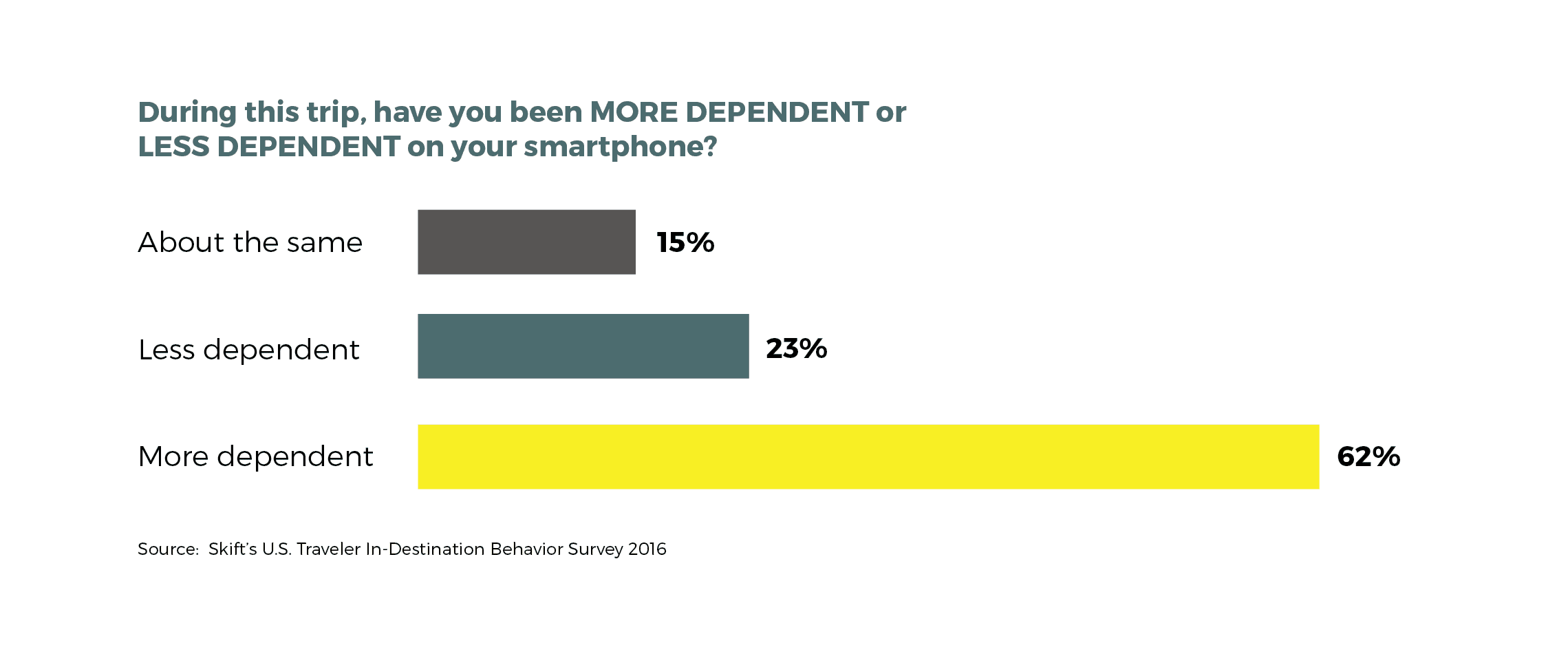
Over time, travel experience became almost cliché and commoditized. By some estimates, the global leisure travel industry now transacts north of one trillion U.S. dollars. In this environment of mass tourism, people have become constrained by the prescribed experiences dictated to them by global travel enterprises. Now, however, those same brands have been challenged to create bespoke, more humane experiences where customers are treated like individuals.
Some avid travelers have moved on to more extreme experiences because what’s available to the masses has lost its luster. The growing popularity of adventure travel could be a direct result of boredom and disdain for the unoriginal. Needless to say things are quickly changing – both for the customer and for the travel provider.
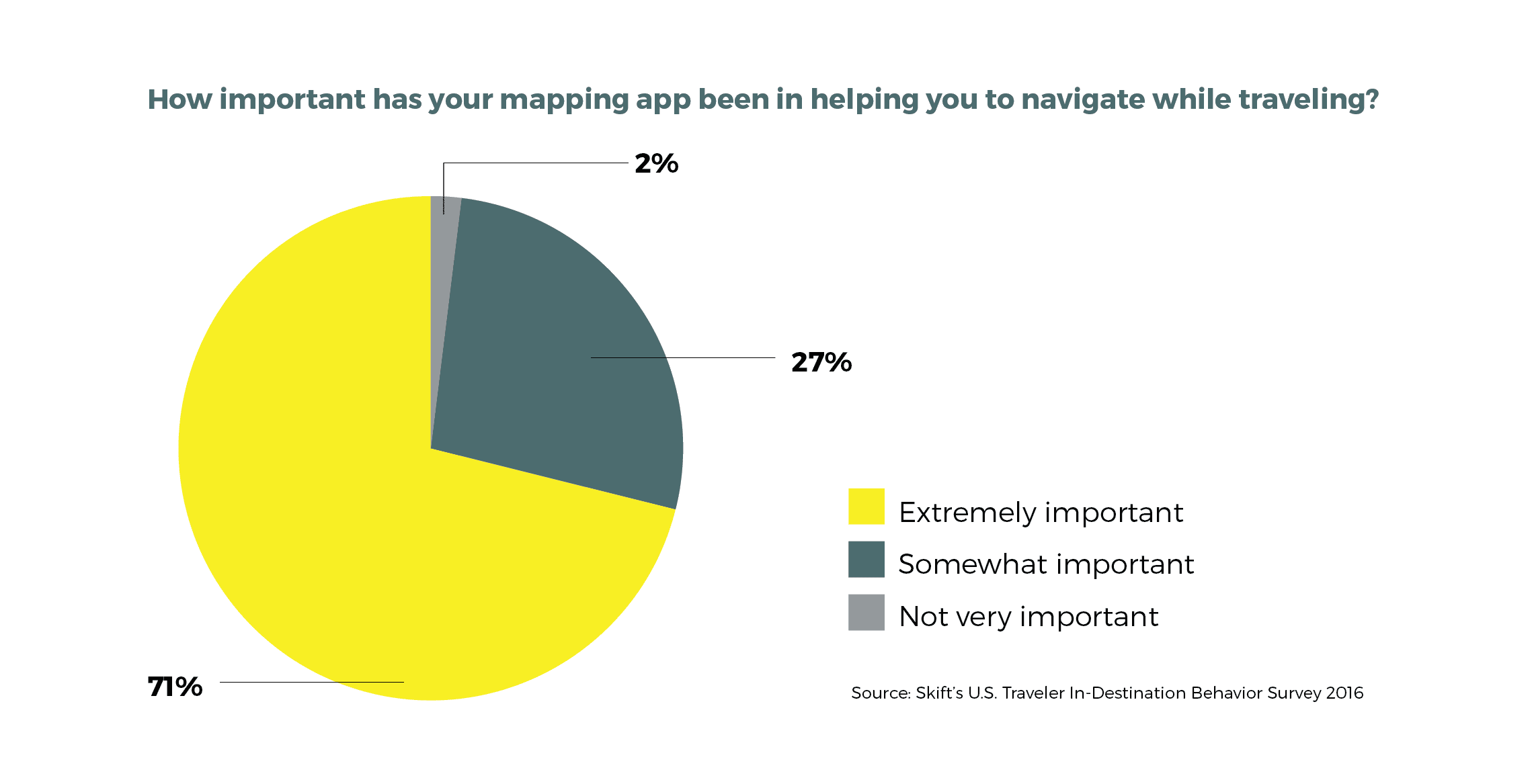
The Liberated and Unpredictable Traveler
The year 2007 changed everything when, amid heavy skepticism, Steve Jobs announced the first iPhone. At that point, online search-and-book was just the first digital innovation that would eventually put the power of self-discovery back into the hands of the traveler.
From those early days, mobile computing has quickly evolved, giving us the power to break through the stock holiday for the masses, to create three-dimensional and personalized travel experiences. Mapping apps, recommendation engines, user-generated content, hailing services, social media, digital payments, and even dating apps are transforming the traveler journey. We call it technology assisted travel.
As it turns out, most of us consume even more data when traveling. Skift’s Custom Insights team surveyed 1,200 active, avid, and technologically inclined travelers about their mobile consumption habits at the time of leisure travel. We looked at many different dynamics and found that today’s travel experiences lean heavily on our portable devices.
Consumption goes well beyond general communication with friends and family. Seventy-one percent of these smartphone users said that mapping apps were extremely important for navigating while traveling. Mapping tech clearly goes beyond simple directional dependency. It’s the combination of GPS, place listings, and user-generated content that makes it so useful and attractive. Finding those look nooks that we would have never known about had it not been for our smartphones.
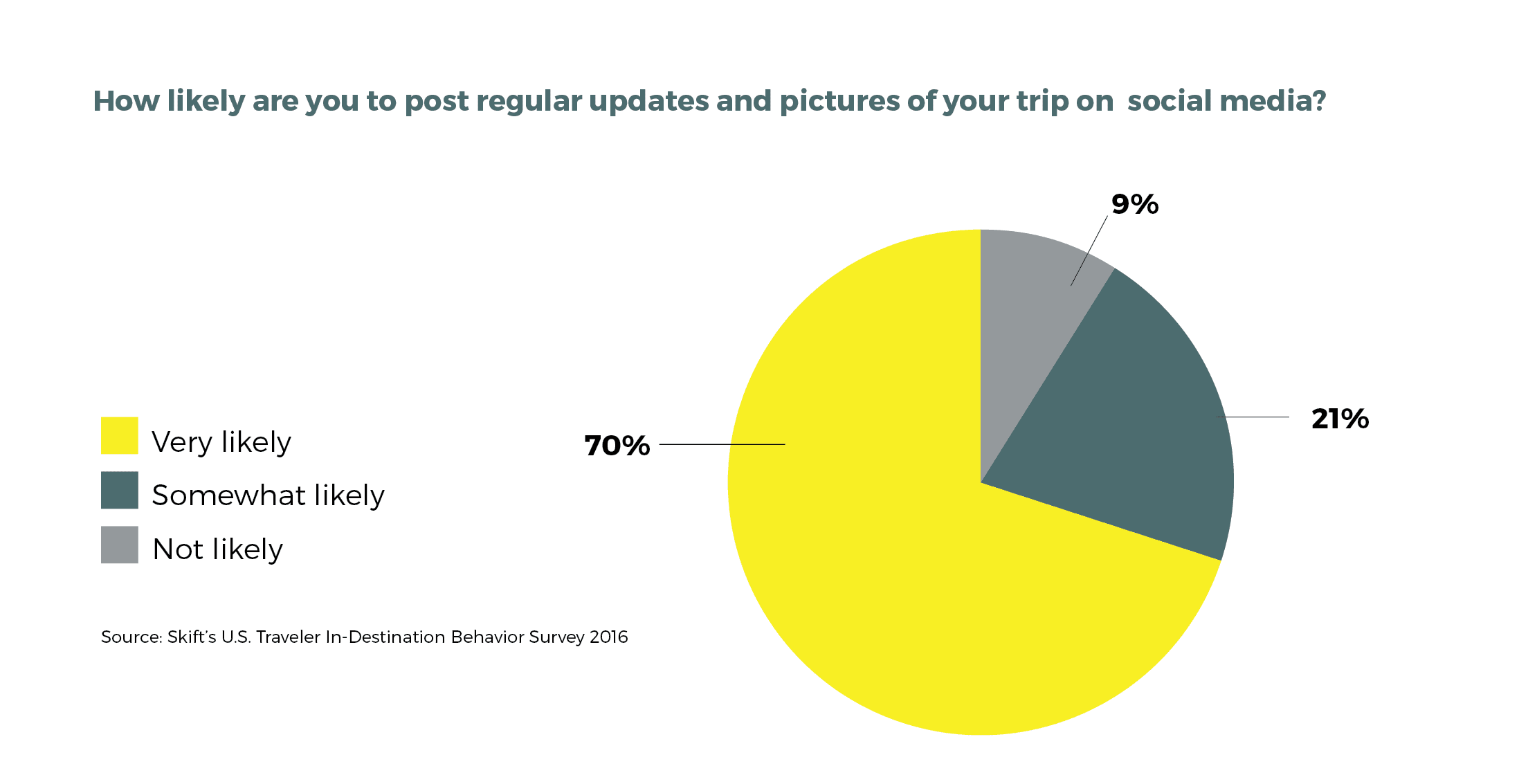
Social media’s rise also changed the nature of travel. Some very smart people ultimately figured out that branded content can live alongside person-to-person communication. An Instagram post of New York’s High Line, followed by an elegant snap of the Whitney Museum likely sparked the start of many travel journeys.
People are even dating and falling in love while away on their travels, all with the aid of their mobile devices. Fifty-nine percent of those surveyed said they had downloaded a dating app. When asked of the likelihood that they would use a dating app to connect with locals while traveling, the share jumped well beyond even that.
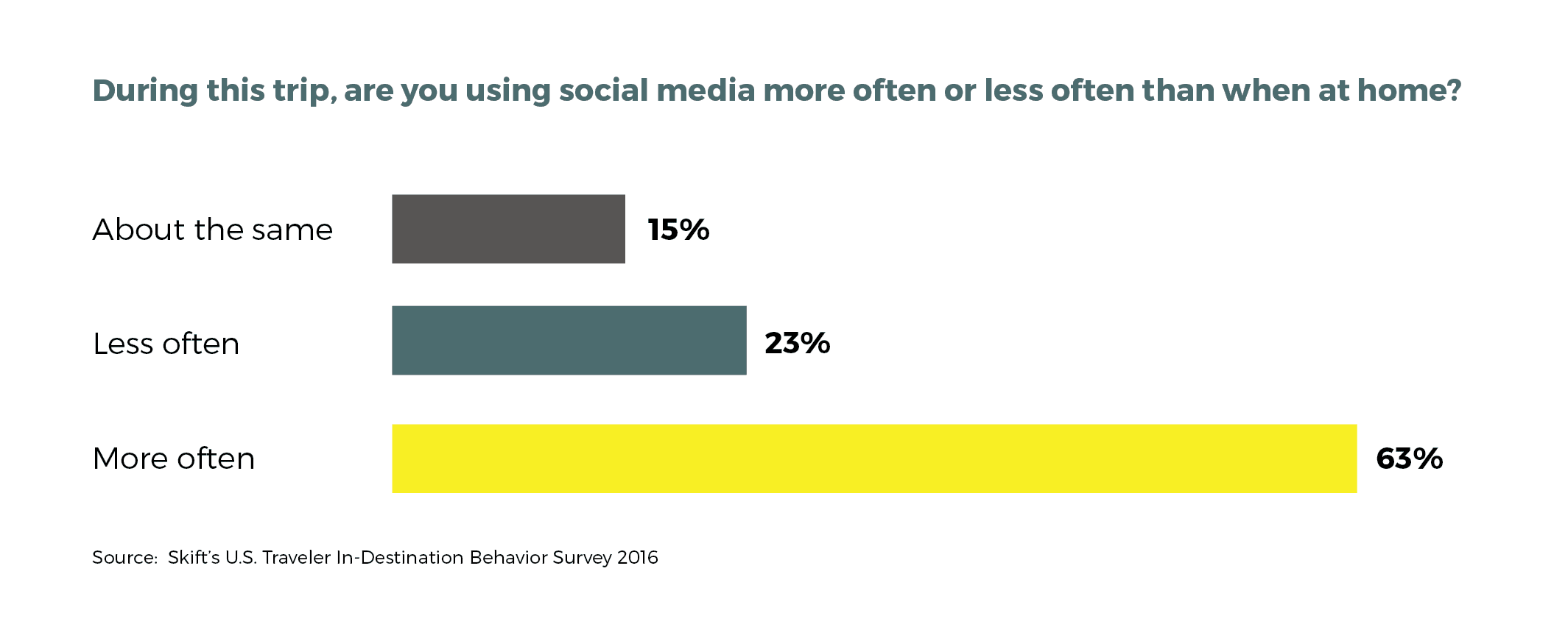
What effect has this transition into digital had on the mindset of the modern traveler? Travel providers now have a tough job understanding where and how they need to connect with their core customers. Call them tribes, call them personas, call them anything but predicable. Ironically, the same technology that allows us to peek into people’s profiles also confounds us by freeing the traveler from traditional and two-dimensional travel constructs.
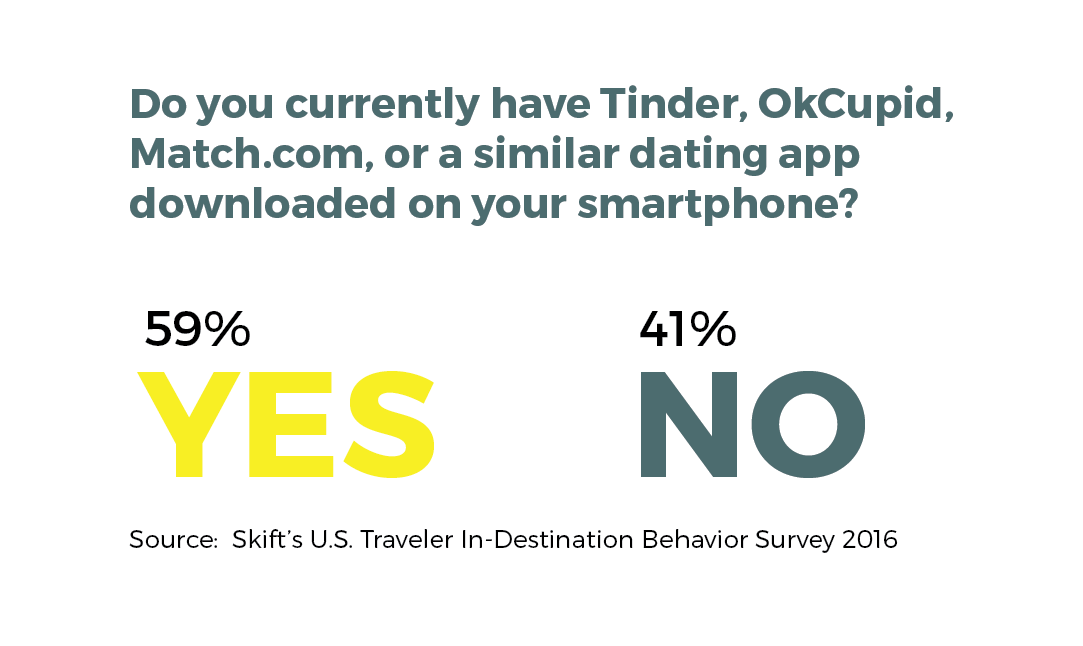
The booking platform, the flight, the hotel, the museum. That’s the old school. Yesterday’s travel agents, planes, trains, rental cars, hotels, and vacation rentals must now live side-by-side with mapping apps, dating apps, peer-to-peer rentals, recommendation engines, user-generated content, instant transportation, and new loyalty schemes. The product/platform mix continues to expand.
Conceptualizing a one-size-fits-all model of the travel customer is difficult, if not impossible. So many different personas and personalities live among us and even within us. We are chameleons; very different people when traveling alone or with significant others, on bachelor parties, or on honeymoons.
Some in the industry have tried, but most have largely failed to capture the full complexity of traveler behavior using narrow and limiting constructs. Clunky concepts like the booking funnel, search-shop-buy, path-to-purchase, and other simplifications miss the mark when it comes to connecting with the modern traveler mindset.
While useful in their own right, what’s missing is a human-centric model of the traveler journey. Focusing on click-through and page views will maximize revenues. Creating a brand that inspires travelers is much more difficult and arguably worth even more.
Understanding the state of the traveler mindset throughout the entire traveler journey is clearly important during this era of experiential travel. Stepping outside of the travel industry has helped us to understand what moves people.
Here, we applied a classic paradigm to understand where brands can connect and inject themselves along the travel journey: The Hero’s Journey, based on Joseph Campbell’s seminal book, The Hero With a Thousand Faces. Campbell outlined human behavior through the lens of mythology and recurring themes present in ancient literature, all the way through modern cinema. Some of the biggest Hollywood blockbusters were inspired by Campbell’s vision.
He conceptualized the “monomyth.” In comparative mythology, it is the common template for a broad category of tales that involve a hero who goes on an adventure and, in a decisive crisis, wins a victory, and then comes home changed or transformed.
Campbell's work applies to adventure travelers and everyday travelers because at the end of the day, we all want to be heroes. We’re all looking for something more out of travel. We want travel to transform us. It’s an outlet for self-discovery.
Why should travel brands care? Because the modern day traveler experience is a story that has been relived and retold throughout the ages; Campbell understood deeply that the quest for self-discovery never ends.
He also mapped out 12 stages that all epic stories and poems share. It’s a psychological journey as much as it is a chronological one.
12 Stages of Campbell’s Hero’s Journey
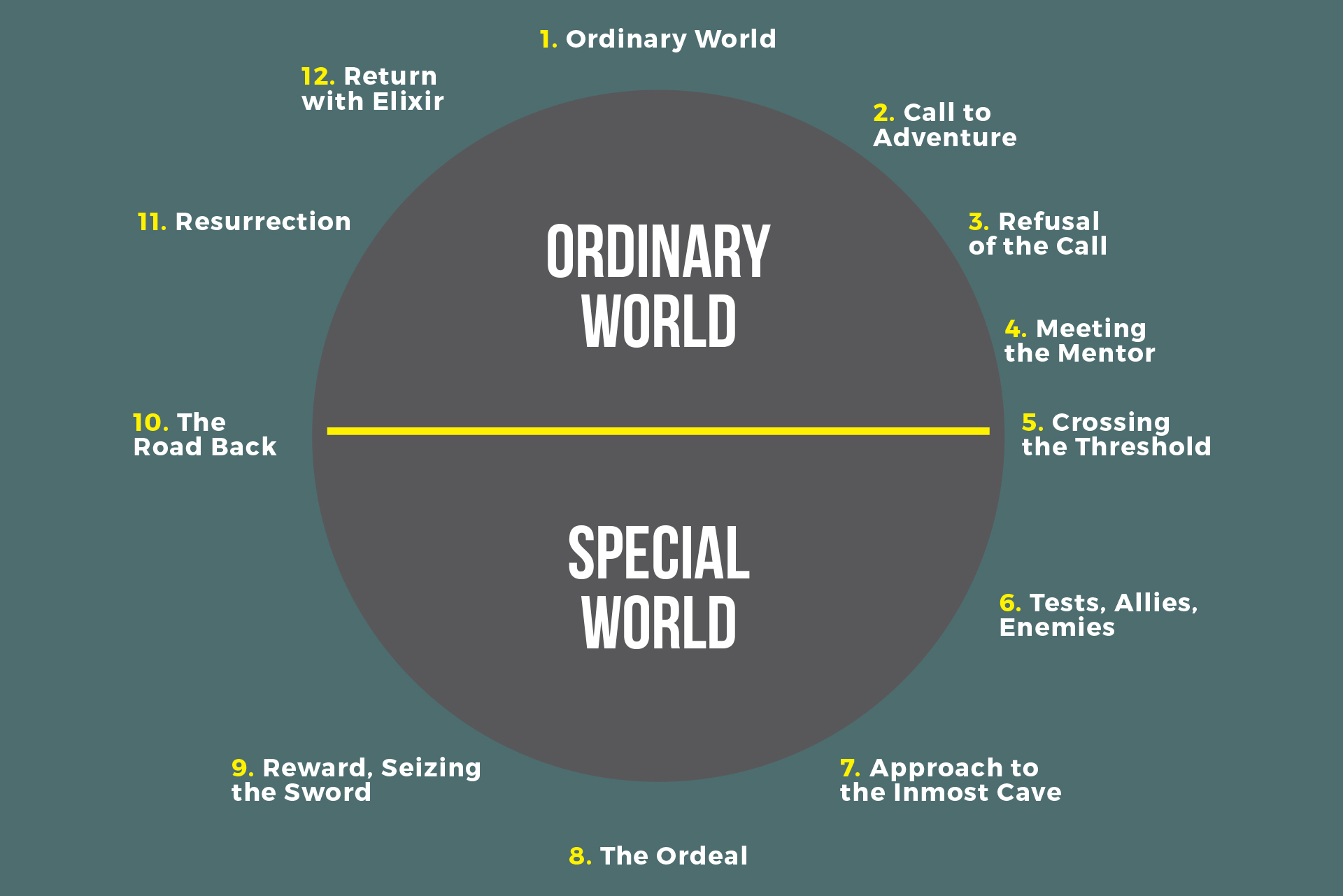
Perhaps the biggest takeaway from Campbell’s mapping of the mono-myth, as applied to modern travel, is the fact that people step outside of themselves when they are on the road. They leave the ordinary behind and step into a special world where the same rules may no longer apply. It’s a transition and cycle that can manifest in different forms. Every travel experience is unique, but a common vein in human psychology can exist in many forms of travel.
Here are Campbell’s 12 phases of the hero traveler’s psychological journey. Travel brands can draw many lessons from each of these steps. It’s an old yet flexible framework, not a step-by-step manual, on how to understand and connect with the modern traveler.
We now have the power to connect with travelers during the full length of their journeys. When and how to interject has perplexed many brands.
Here are some thoughts on each step as it applies in myth, and how it translates into travel:
The Ordinary World
In myth: The hero is oblivious to the adventures to come. It’s the safe place, the everyday life where we learn crucial details about our hero.
In travel: This is the time for travel brands to really get to know their customers: To find out who they are and what type of experience might bring forth a call to adventure.
Call to Adventure
In myth: The hero’s adventure begins when they receive a call to action. It may not be as dramatic as a gunshot, but simply a phone call or conversation when they least expect it. Whatever the call is, it ultimately disrupts the comfort of the hero’s ordinary world.
In travel: This is understanding your customer base and their situational awareness to find the perfect moment to plant the seed. These could be seasonal, geographic, or cultural distinctions that set your traveler apart.
Refusal of the Call
In myth: Although the hero may be eager to accept the quest, at this stage they will have fears that need to be overcome.
In travel: Travel is a big investment in time and money; there are many excuses and real-life challenges that people can make for themselves before making the decision to travel.
Meeting the Mentor
In myth: At this crucial turning point where the hero desperately needs guidance, they meet a mentor figure who gives them something they need. It could be wise advice, practical training, or even self-confidence. The mentor’s offering helps dispel their doubts and fears, giving them the strength and courage to begin their quest.
In travel: A central question travel brands must ask themselves here is how to become the mentor, the guide that helps customers fulfill their mission. Is it through reviews, is it with loyalty points, is it by offering a seamless search experience? Clearly, it's all of these things, but which will convince your traveler hero to make the jump?
Crossing the Threshold
In myth: The hero is now ready to act upon the call to adventure and truly begin their quest, whether it be physical, spiritual, or emotional. This action signifies the hero’s commitment to their journey and whatever it may have in store.
In travel: This is the point at which there is a sudden shift in attitude in the traveler’s mindset. Commitments have been made, and risks have been taken. It’s a liberation of sorts, and a period of anticipation, excitement, and positive thinking on the part of the traveler. Brands should take advantage of this opportunity to convey their true identities.
Tests, Allies, Enemies
In myth: Now finally out of thier comfort zone, the hero is confronted with an ever more difficult series of challenges that test them in a variety of ways. The hero needs to find out who can be trusted and who cannot. They may earn allies and meet enemies who will, each in their own ways, help prepare them for the greater ordeals yet to come.
In travel: After that initial period of optimism and after crossing the threshold, the traveler must endure the initial acclimation period into the special world. These can include inconveniences such as long lines at taxi stands or airport check-in. Travel brands should be cautious at this stage and try to emerge as the hero's ally, not the enemy.
Approach to the Inmost Cave
In myth: At the threshold to the inmost cave, the hero may once again face some of the doubts and fears that first surfaced upon their call to adventure. They may need some time to reflect upon their journey and the road ahead in order to find the courage to continue.
In travel: There are many things that can throw a traveler’s original plans off track. These can be internal and external: budget, weather, or even food poisoning. Here, it’s important to keep in mind that the traveler journey is not yet completely defined, even after concrete plans have been set in motion. It’s the stage before the traveler reaches the pinnacle of the trip, that one experience that will leave her satisfied about her decision to leave the ordinary world.
The Ordeal
In myth: The hero must draw upon all of their skills and experiences gathered upon the path to the inmost cave in order to overcome their most difficult challenge. Only through some form of “death” can the hero be reborn, experiencing a metaphorical resurrection that somehow grants them greater power or insight necessary in order to fulfill a destiny.
In travel: This is the breaking point. Either the traveler finds what she was looking for or fails in her mission and begins to reenter the ordinary world unfulfilled. Travel can be a race against time. Catching the traveler at this moment in time can be both a blessing and curse for the travel brand.
Reward
In myth: After defeating the enemy, surviving death, and finally overcoming their greatest personal challenge, the hero is ultimately transformed into a new state, emerging from battle as a stronger person and often with a prize.
In travel: Here the traveler has succeeded in planning and executing a satisfying travel experience. At this point she might be more receptive to interaction with you, the travel provider, but probably more difficult to upsell on additional items.
The Road Back
In myth: Now they must return home with their reward but, this time, the anticipation of danger is replaced with that of acclaim and perhaps vindication, absolution, or even exoneration. However, the hero’s journey is not yet over and they may still need one last push back into the Ordinary World.
In travel: After the hype of the reward starts to wear thin, the traveler sets back into the realization that it’s soon time to go home. Here, travel brands should become the mentor once again, helping travelers through the process of negotiating this situation. Don’t run the risk of cutting the experience too short.
Resurrection
In myth: This is the climax during which the hero must have their final and most dangerous encounter with death. The final battle also represents something far greater than the hero’s own existence, with its outcome having far-reaching consequences for their ordinary world and the lives of those they left behind.
In travel: Reentry back into the ordinary world can be the most sensitive and dangerous time for travel brands to interact with the customer. For successful travelers, facing reality can put them on edge. For the unfulfilled traveler, a satisfaction survey would be the last thing she wants to see.
Return with Elixir
In myth: The final reward that the hero obtains may be literal or metaphoric. It could be a cause for celebration, self-realization, or an end to strife, but whatever it is, it represents three things: change, success, and proof of the journey.
In travel: This is where the traveler wants to record and understand how her investment has changed her. She is reliving the experience through photographs, remembering the good parts, and romanticizing the bad. For travel brands, this is an opportunity to re-implant themselves into the traveler’s field of view and possibly into her long-term memory.
Bringing the Humanity Back into Travel Brands
Sometimes it’s difficult for professionals within any industry to look outside themselves and to examine their products and services as true customers would. Putting ourselves into the hero’s shoes is critical in fulfilling our own brand success. Travel, in particular, is difficult because so much of the travel experience is outside of our control. Yet there are steps we can take to strive toward a better connection with our customers. Perhaps, the first step is to stop treating travelers like consumers, and start treating them like the heroes they really are.
As travel enablers, it can be difficult for the travel industry to step away from the prescribed experiences, functionalities, and brand identities that make sense in our own heads. Ironically, the passion that travel professionals have for the industry, and for their products can make it difficult to fully comprehend their role in building successful travel journeys for their customers.
In our relentless efforts to understand what drives the travel consumer, this summer, Skift assembled a high-profile focus group of individuals that had more than a few things to say about the modern-day travel experience. These were people who have made a lifestyle and even a career out of travel.
Dedicated founders of companies, writers, technology experts – people who have pushed the travel ecosystem to its limits, testing, prodding, poking, and searching for platforms, loyalty programs, and product offerings that even some of us at Skift haven’t heard of. We wanted to go beyond what the survey results could tell us about the traveler mindset.
Some great insights came out of the energizing three-hour session at Skift’s New York City headquarters. There were some surprises and some things that were really good to hear directly from the horse’s mouth. We dug for the details about the group’s frustrations with air travel and their habits when it comes to tech and social media, and ultimately what makes it all worthwhile.
Perhaps the biggest takeaway was how much the group actually knew about the various options out there. All the numerous tricks and tips to making the most out of travel without breaking the bank was a palpable passion for this group. It also became very clear that these are the people that the travel industry should really be listening to.
Above all, we should strive to understand how the experiences we provide to our customers make travelers feel. It’s the human element that makes all the difference. Travel is a huge investment in time and money. Travelers will forget what we say in our ads. They will forget what we do with our promotions. But they will never forget how our brands make them feel.
And it's these super travelers who are close enough to the experience to actually give a shit about what we can do better to ensure that Travel (with a capital T) stays top of mind, not just for the savvy consumer, but also for the masses. As we strive to inspire our customers, it helps to have some guiding principles to follow.
So, here you go: The following are 10 maxims that we distilled from our relentless efforts to tell the travel industry’s story through the lens of the consumer. We hope that these help you, the travel provider, on your own journey and mission to build successful businesses.
Brands like to talk about surprise and delight, but for the regular traveler it’s more of a two-sided coin: pleasure and pain.
If we are lucky, when we return to the office after a trip, it is with a story about how some cool tech made something really easy or how a flight attendant or check-in clerk gives us something we didn’t expect. But often we come back with stories about what an airline did wrong this time or how some app led us in a wrong direction.
To gain better insight into where travel brands are doing things right, as well as where they fall short, we talked to almost a dozen seasoned travelers about what they experience on the road: what makes them happy and what doesn’t. And to keep it simple, we only asked them two questions. Thankfully, their answers aren’t simple at all.
This Project
This feature was conceived by Skift Research Director Luke Bujarski. He was aided by members of Skift's editorial, production, and development team. That team included:
Design: Ping Chan
Development: Mike Linden
Rachel Bronstein
Edit: Rafat Ali
Jason Clampet
Sarah Enelow
Deanna Ting
About Skift
Skift is the largest industry intelligence platform providing media, insights, and marketing to key sectors of travel. Skift deciphers and defines global travel trends for the marketers, strategists, and technologists in the global travel industry. We do this in a multitude of ways:
SKIFT.COM: Daily news and insights
Skift.com is the daily homepage of the travel industry. Through original reporting and analysis, it’s the leading source of intelligence for the industry and its watchers.
SKIFT NEWSLETTERS: Inbox intelligence
Daily and weekly updates on the news the travel industry needs to do its job. In addition to daily emails, we also have sector-specific weekly emails devoted to:
• Corporate Travel
• Meetings and Conventions
• Business Travelers
TRENDS REPORTS: Bi-monthly deep industry dives
Skift Trends Reports are aimed at the strategists, marketers and technologists in travel, providing the latest intelligence on travel trends.
SKIFT GLOBAL FORUM: Thought-leadership event
Our Global Forum is a creative business forum, with carefully curated topics and speakers to inspire the professionals in travel about the business and creative promise of the sector.
SKIFT X: Branded content studio
Skift’s in-house content studio redefines the way the travel industry approaches marketing through creative storytelling.
SKIFT PODCAST: Conversations with leaders
Our twice-monthly podcasts bring leaders and experts into our studio to discuss emerging trends and compelling industry developments.



